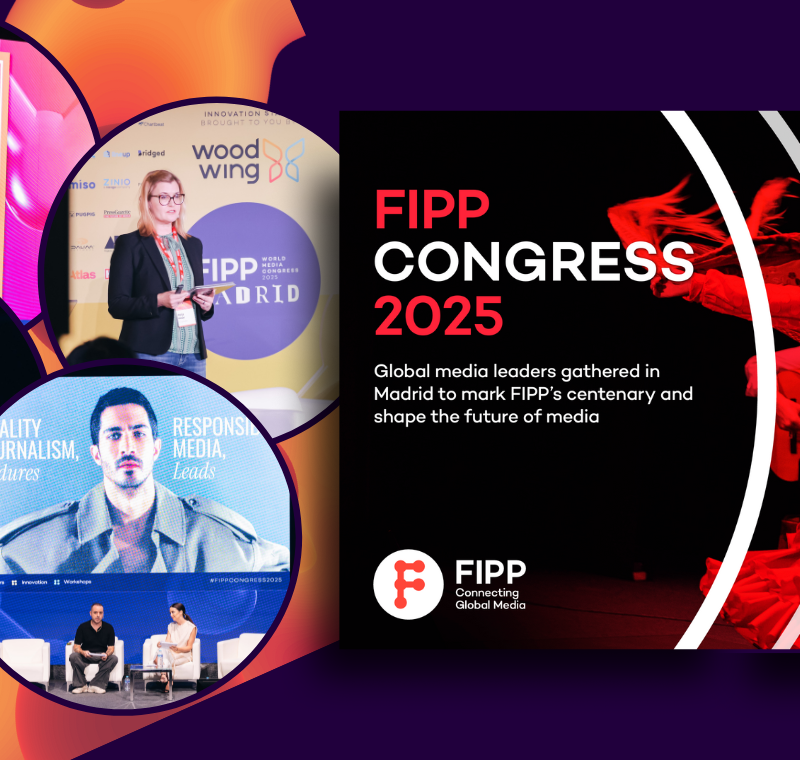Africa rising: why and how Quartz, GE (Media) want in
Ernest & Young reports that “African investors nearly tripled their share of FDI projects over the last decade, and intra-African investment has also driven job creation on the continent. With the diversification of economic activity in Africa gathering pace, growing employment levels are creating a new consumer class. This has paved the way for increasing FDI in consumer-focused services and manufacturing sectors.”
This week, The Atlantic’s Quartz mobile-first business publication announced plans to launch an Africa service in June 2015, with GE as its partner. It follows a similar launch in India in 2014, also with GE as its partner. According to a blog post on the company’s Tumblr account, the Africa offering will include “regional content and targeted native ads,” building on the model used in India.
Apart from factors cited above, mobile penetration in Africa is high and there is a lot of innovation within the area, presenting opportunities to brands. According to Informa Telecoms and Media, the continent’s mobile subscriber count will reach 1 billion this year, and 1.2 billion by the end of 2018. For Quartz, as a mobile-first brand, with some Africa content added on top, it seems a good fit.
GE on the other hand has had years of experience on the continent, with deep investments in several sectors. For them, the partnership “provides an opportunity to tell their stories” – a content marketing opportunity, if you want (as an example of the approach, see their GE Innovation Series on Quartz India here).
FIPP’s Cobus Heyl asked Jay Lauf, Quartz co-president and publisher, Jason Hill, GE’s global director of media and content strategy, and Yinka Adegoke, Quartz Africa’s new editor, to elaborate on their plans.
On the face of it, Quartz as a mobile-first brand seems a perfect match for Africa, but please elaborate a little bit on your thinking leading up to the decision to launch on the continent.
Lauf: There is much quality business reporting to be done in the sub-Saharan African countries and most western media are simply focusing on the crises that happen there, not the innovation, technology and business news coming out of the continent. This gives us an opportunity to cover the real business issues in a way that informs educated business executives both inside and outside Africa about these stories.
Hill: Yes, we agree that Quartz’s approach to media consumption is a great match with how people in Africa are engaging with digital. We have been investing in the region for years, as GE sees a big opportunity for our business in Africa due to the growth and infrastructure development. Last August we announced a $2 billion investment by 2018 to continue to support technology, infrastructure, and skill building across the continent. So increasingly we have these compelling technology and infrastructure stories to tell, where we are partnering with our customers to advance the region’s goals. We’ve been doing this across businesses like Power & Water, Healthcare, and Oil & Gas, and have also driven a lot of localisation efforts around partnerships and skill building. We want to tell those stories through content to an engaged audience, and Quartz offers us a high-quality, relevant platform with which to do so.
The partnership between GE and Quartz is an interesting one. Your press release (announcing the Africa offering) mentions things like native advertising, media programmes and content marketing, as well as tech initiatives. Tell us how this will work at a practical level.
Lauf: The partnership will work like other marketing efforts in the sense that we will help GE tell its compelling stories to business leaders in the African market through native advertising and event sponsorships.
Hill: Take a look at what we did with Quartz around the launch of their India product last year. We created a series of GE innovation stories that lived in-stream as well as in an archive, still discoverable via search and social. The Quartz team also created some digital ad products that look and act nothing like traditional display. The combination is a content programme that really checks all the boxes for us: it’s innovative, engaging, and we hope additive to a reader’s experience with the site because stories around innovation and technology mirror the editorial ones people come to read. A programme like this also gives us great thought leadership content that we can use with GE customers and other stakeholders outside of the Quartz environment, and that’s important for a brand like ours. We are always seeking to partner with great storytellers who can distill a technical idea down to an emotional, compelling narrative. We expect to take a similar approach in the work we’ll do in Africa.
FIPP mainly exists not only provide platforms for the sharing of insights and ideas across international markets, but also to help members do cross-border business. International expansion strategies, for example, will be of special interest to most our members. There are of course different ways to do this, so tell us a little more about Quartz’s internationalisation strategy.
Lauf: Our strategy is always evolving, but currently, it’s simply about putting our own journalists on the ground in the markets we want to cover most and expanding our international footprint as we continue to grow.
Getting back to Africa, I assume as a business brand Quartz Africa will be predominantly designed for smartphone and/or desk/laptop access, not feature phones as such. Is that correct, and what is the size of your potential market in those segments in Africa?
Lauf: Yes, that’s correct. Even though the mobile reach in Africa is perhaps a smaller percentage than elsewhere, a small percentage of a large number… is still a large number. Still, currently, 80% of S. African Internet users, for example, access the Internet via smartphone devices. Mobile data traffic is expected to increase 20x between 2013 and 2019 in sub-Saharan Africa. So, the market is only going to continue to grow.
I presume you will mostly focus on English-speaking countries? Which ones?
Lauf: That is correct. At the start, we’ll focus on Kenya, South Africa and Nigeria, plus other sub-Saharan African countries as the news allows.
Apart from the appointment of Yinka Adegoke, it appears from the press release you will have journalists on the ground on the continent covering stories. But will you set up office there? And if yes, where?
Lauf: Adegoke, born in Nigeria, will work between NYC and Africa and lead the team. We haven’t yet hired or announced the rest of the team, but that will happen in the next few months. The rest of the team will indeed be on the ground in the countries mentioned. We will not be setting up an office/bureau specifically and all business/sales efforts will be handled out of US/UK offices.
From a revenue perspective, I presume the business will be ad-driven (global brands, all formats), but will you, have ad sales teams on the continent too?
Lauf: Correct (in respect of the model being ad-driven), but we will not be setting up a sales staff in Africa, for now that will be handled out of our US/UK offices.
Outside of Africa, there is often this common mistake to think of “Africa as one country,” when, while there are common denominators, it is not. So while there will be interest in global stories (as your data already show – Quartz currently has some 100,000 monthly unique users accessing the site from Africa), there will also be pan-African interests, regional interests (e.g. SADC, East African Community, ECOWAS and COMESA) as well as country-specific interests. How do you plan to cater for this?
• From an editorial/content perspective
• And the way you set up to serve those particular needs (e.g. leveraging international content and creating local content partnerships)?
Hill: We have partnerships in Africa going back 100 years, and today operate in 35 countries on the continent. We are taking the full breadth of our presence into account as we map out the content calendar for the program.
Adegoke: This is something we’ll work hard to differentiate. While it’s important to cover much of sub-Saharan Africa, we understand that each country has its own identity, economy, infrastructure and culture. We’ll make sure to avoid generalisations about the populations.
Who do you see as your main competitors of your Africa service?
Adegoke: Quartz is in a unique position. While many other media companies that exist in or report on African countries have a much more local focus or are focusing on crises in the region, Quartz has an opportunity to bez one of the only digital and mobile-first players to cover business and innovation in the region.
More on Quartz
• The Atlantic launched Quartz in 2012 as a disruptive, mobile-first brand.
• Quartz India launched in June 2014. According to the company it reaches more than 1.3 million readers monthly, growing more than 500 per cent in 8 months
• The Africa site will launch in June 2015. Users in Africa will be automatically redirect to the Africa site via qz.com. Users outside Africa will be able to view Africa news via qz.com/Africa.
• See more Quartz stories and news snippets on FIPP.com, here.
Interested in international media trends, innovations and more?
• Check out FIPP’s limited special offer for four of our in depth reports, in print (hold it, keep it, share it) at a discounted rate, saving you hundreds of pounds.
• Attend our upcoming events to hear from leading international speakers on topics of interest to the industry.
• Stay up to date by subscribing to our newsletters or following us (and joining the conversation) on Twitter (@FIPPWorld), Facebook, LinkedIn and more (connect via the icons at the top of this page).
Get in touch
We love to get stories from our members. Get in touch with Amy Duffin.


![[New!] FIPP Global AI in Media Tracker – November 2025](https://www.fipp.com/wp-content/uploads/2025/06/articles-header-800x760.png)






